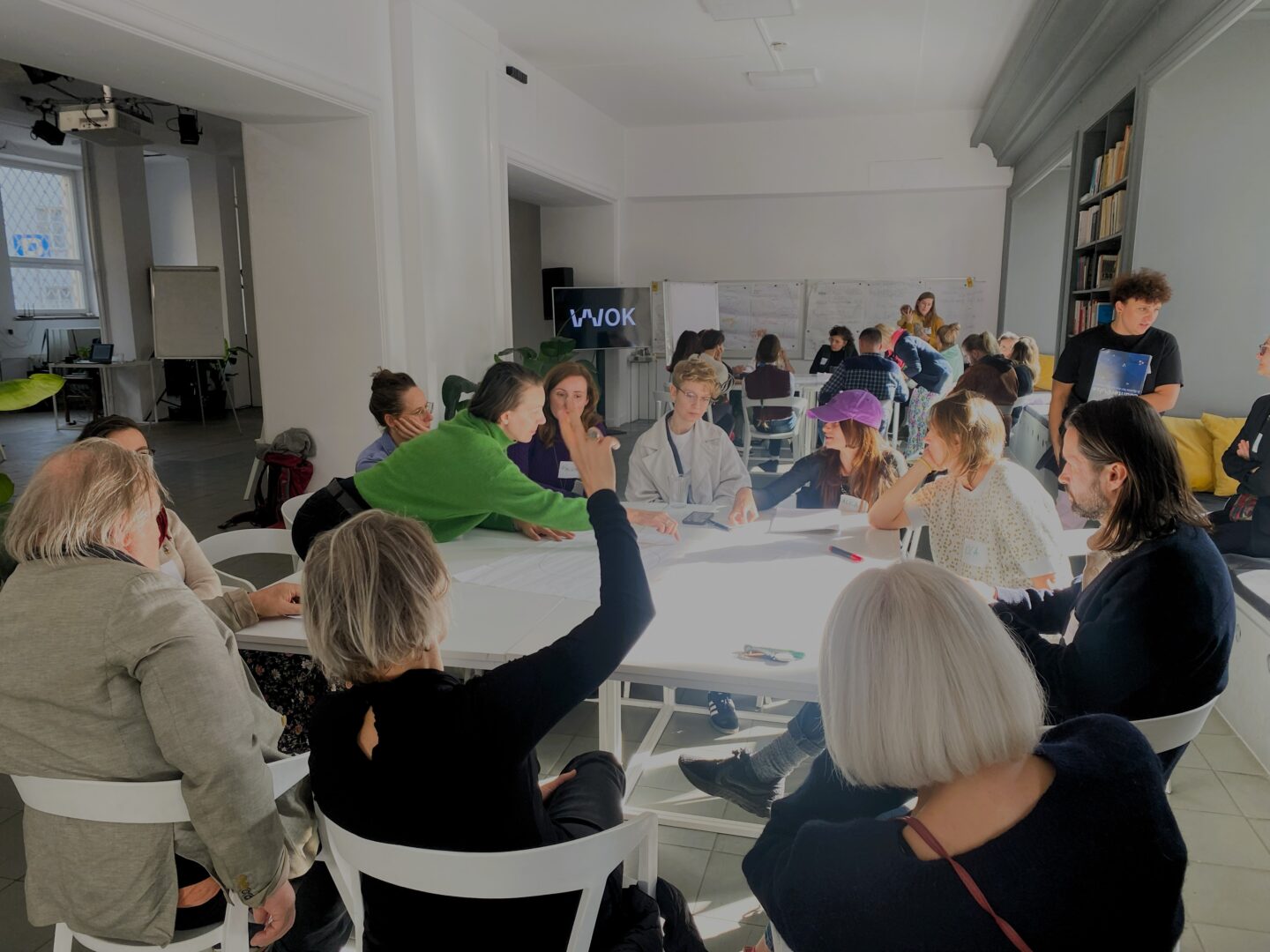Second workshop meeting on modelling a dance institution in Warsaw
Action plan: towards a dance institution
The workshop, which took place on 10 October, consisted of two parts. In the first part, Artur Jóźwik, Director of the Culture Office, presented a concrete action plan for the years 2023–2025. The timetable presented includes the next steps to be taken in order to prepare the Vistula River Pavilion for the new role it will play in the future. It will become the venue for a pilot dance programme (September 2024–August 2025), then it will serve as the temporary home for a new city dance institution. To achieve this, the Pavilion will need to be modernised and equipped. In early 2024, a competition will be launched to propose the activities to be carried out in the Pavilion as part of the planned pilot programme. The pilot will be developed in dialogue between Warsaw’s dance community and the Culture Office, with the participation of the Museum of Modern Art, which owns Vistula River Pavilion, in cooperation with WOK as a research institution.
Pilot dance programme – what we need?
The second part of the workshop focused on the identity of the dance community, its goals and needs. Participants were divided into groups to discuss what actions should be taken to ensure that the pilot year at the Pavilion on the Vistula would justify the establishment of a permanent dance venue in Warsaw. We heard many voices during the discussion, and the topics discussed mainly focused on the main challenges facing the dance community: quality, a professional venue, growth, and dance varieties that trigger a progressive experiment.
During the discussion of the planned pilot activities, the concept of a network of venues with the Pavilion on the Vistula as a command centre, delegating its activities to various municipal performance spaces suitable for the needs of the dance discipline, became one of the key issues. Another important issue was the possibility of engaging the public with dance, and therefore a significant part of the pilot programme should be devoted to extensive promotion of dance in its various forms. This could be done through dance performances, workshops and the development of dancers and choreographers.
The next stages of WOK’s work on the process of modelling a new dance institution will include focus group research and expert interviews, which we are currently working on. These will be used to develop recommendations for the terms and conditions of the planned competition to run the pilot programme at the Pavilion.






